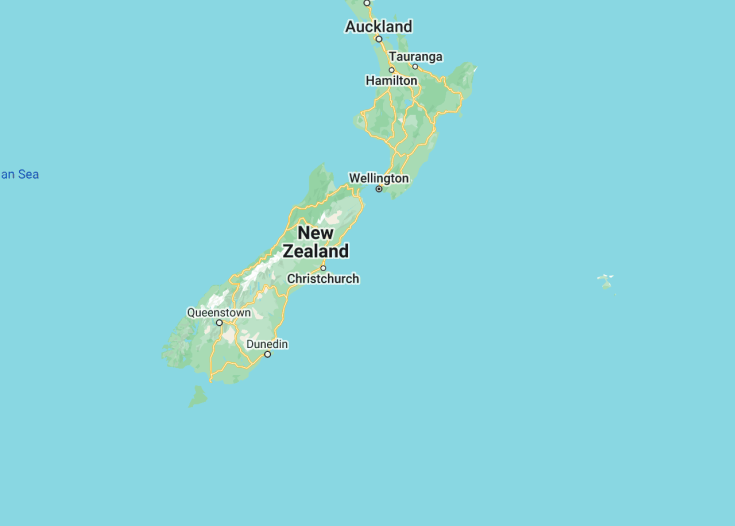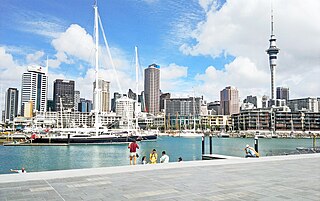New Zealand is a breathtaking travel destination offering a diverse range of landscapes, from majestic mountains and pristine lakes to stunning coastlines and lush forests. Experience thrilling adventures like bungee jumping, skydiving, and scenic hikes. Immerse yourself in the rich Maori culture and discover unique wildlife, including kiwis and dolphins. Indulge in world-class wine and gastronomic delights. Whether you’re seeking adrenaline-pumping activities or serene relaxation, New Zealand has it all.
Don’t miss the chance to explore the breathtaking Fiordland National Park, home to the iconic Milford Sound. Be sure to take a scenic cruise to marvel at the towering cliffs, cascading waterfalls, and abundant wildlife.
For an unforgettable experience, plan a hike through Tongariro National Park, where you can trek across volcanic landscapes, marvel at vibrant turquoise lakes, and even walk on the active volcanic plateau.
Top destinations in New Zealand
New Zealand: An Adventurer’s Paradise
| Capital | Wellington |
| Time in New Zealand | GMT+12 |
| Language spoken | English |
| Population | 5,148,200 (source: World Bank) |
| Religion | Christianity (52%) Hinduism (2%) Buddhism (2%) Islam (2%) Other religions (6%) |
| Currency | New Zealand Dollar (NZD, NZD) |
| Airports | Auckland International Airport Christchurch International Airport Wellington International Airport Queenstown International Airport Dunedin International Airport |
New Zealand is a breathtaking travel destination known for its stunning landscapes, adventure activities, and rich Maori culture. With its snow-capped mountains, pristine beaches, lush forests, and picturesque lakes, it’s no wonder that New Zealand is often referred to as the “adventurer’s paradise.”
New Zealand has a fascinating history that dates back to its settlement by the indigenous Maori people over 1,000 years ago. The arrival of European explorers in the 17th century marked the beginning of a new era for the country. Today, New Zealand is a thriving nation with a diverse population and a strong economy.
Where is New Zealand located? New Zealand is located in the southwestern Pacific Ocean, southeast of Australia. It consists of two main islands, the North Island and the South Island, along with numerous smaller islands. The capital city of New Zealand is Wellington, situated on the southern tip of the North Island.
What is New Zealand famous for? New Zealand is famous for its stunning natural beauty, which has served as the backdrop for numerous movies, including the famous “The Lord of the Rings” trilogy. The country offers a wide range of outdoor activities, such as hiking, skiing, bungee jumping, and water sports. It is also known for its unique wildlife, including the kiwi bird and the endangered yellow-eyed penguin.
Where is New Zealand located?
New Zealand is located in the southwestern Pacific Ocean, southeast of Australia. It consists of two main islands, the North Island and the South Island, along with numerous smaller islands. The capital city of New Zealand is Wellington, situated on the southern tip of the North Island.
What is New Zealand famous for?
New Zealand is famous for its stunning natural beauty, which has served as the backdrop for numerous movies, including the famous “The Lord of the Rings” trilogy. The country offers a wide range of outdoor activities, such as hiking, skiing, bungee jumping, and water sports. It is also known for its unique wildlife, including the kiwi bird and the endangered yellow-eyed penguin.
History
The history of New Zealand dates back to the arrival of the Maori people in the 13th century. These Polynesian settlers established the foundations of Maori culture and society upon their arrival, developing a rich and vibrant civilization. European contact began in the late 18th century, with the arrival of British explorer James Cook. The signing of the Treaty of Waitangi in 1840 between the British Crown and various Maori chiefs established British sovereignty over New Zealand, while also recognizing Maori rights and land ownership.
1840-1900
During this period, New Zealand experienced a significant increase in European immigration, primarily from the United Kingdom. The economy grew through the development of agriculture, forestry, and mining, as well as the establishment of towns and cities. The New Zealand Wars, fought primarily between the British colonial government and Maori tribes, marked a turbulent time in the country’s history. The wars resulted from disputes over land ownership and Maori resistance to colonial encroachment.
New Zealand became a Dominion within the British Empire in 1907, gaining greater autonomy and self-governance. The country actively participated in both World Wars, contributing soldiers and resources to the conflicts. The post-war period saw significant economic and social changes, with the implementation of a welfare state and increased urbanization. The 1930s brought the Great Depression, which had a profound impact on the country’s economy and society.
1951-2000
The latter half of the 20th century brought about a series of changes in New Zealand. The country underwent rapid social and cultural transformation, with the Maori people reclaiming their identity and fighting for their rights and land. The 1980s and 1990s witnessed significant economic reforms, including the deregulation of industries and the adoption of a free-market economy. New Zealand also became a nuclear-free zone and played a role in promoting disarmament and peace.
2001-Present
In the 21st century, New Zealand has continued to flourish as a multicultural and diverse nation. The tourism industry has grown significantly, with visitors drawn to the country’s stunning natural landscapes, adventure activities, and indigenous culture. New Zealand has also become known for its environmental initiatives and commitment to sustainability. The country has experienced occasional natural disasters, such as earthquakes and volcanic eruptions, but has shown resilience in rebuilding and recovery.
Visit New Zealand
What to see and do in New Zealand
When visiting New Zealand, there are a multitude of incredible attractions and activities to experience. Here are some highlights:
- Explore the breathtaking landscapes of Fiordland National Park, home to the renowned Milford Sound.
- Embark on a journey through Middle-earth by visiting the filming locations of “The Lord of the Rings” and “The Hobbit” movies.
- Discover the unique Maori culture by visiting cultural centers and experiencing traditional performances.
- Indulge in adventure sports like bungee jumping, skydiving, and jet boating in Queenstown, the adventure capital of New Zealand.
- Explore the vibrant city of Auckland, known for its iconic Sky Tower and beautiful harbors.
- Relax and rejuvenate in the geothermal wonders of Rotorua, which offers hot springs, mud pools, and geysers.
Events in New Zealand
New Zealand hosts a variety of exciting events throughout the year, catering to diverse interests:
- The New Zealand International Arts Festival in Wellington showcases a range of artistic performances and exhibitions.
- The New Zealand Agricultural Show in Christchurch highlights the country’s agricultural heritage with livestock displays and competitions.
- The Hokitika Wildfoods Festival celebrates unique and unusual culinary delicacies from the West Coast region.
- The Auckland Lantern Festival lights up the city with vibrant lantern displays, cultural performances, and delicious Asian cuisine.
Best time to visit New Zealand
The best time to visit New Zealand largely depends on personal preferences and the activities you wish to engage in. However, the country’s mild climate and stunning scenery make it an ideal destination year-round. Summer (December to February) offers warm temperatures and longer days, perfect for outdoor adventures and beach activities. Autumn (March to May) showcases vibrant colors and comfortable temperatures, making it an excellent time for hiking and exploring nature. Winter (June to August) provides opportunities for skiing and snowboarding in the mountainous regions. Spring (September to November) brings blooming flowers and mild weather, ideal for outdoor activities and witnessing wildlife.
Is New Zealand worth visiting?
New Zealand is undoubtedly worth visiting for its awe-inspiring landscapes, rich cultural heritage, and thrilling adventure opportunities. The country offers a diverse range of experiences, from exploring pristine national parks to immersing oneself in Maori culture. The warm and welcoming nature of the locals further enhances the overall experience. However, it is important to note that New Zealand is a relatively remote destination for many travelers, and reaching the country may involve long flights. Additionally, expenses can be higher compared to some other destinations. Nevertheless, the unique experiences and natural beauty that New Zealand offers make it a captivating and rewarding destination for those seeking an unforgettable journey.

















